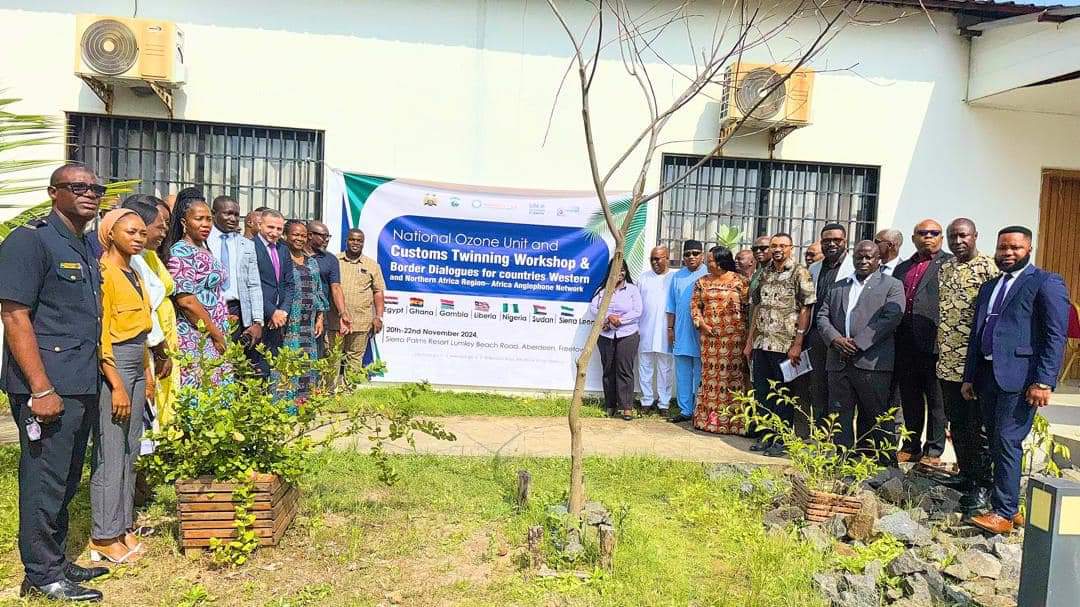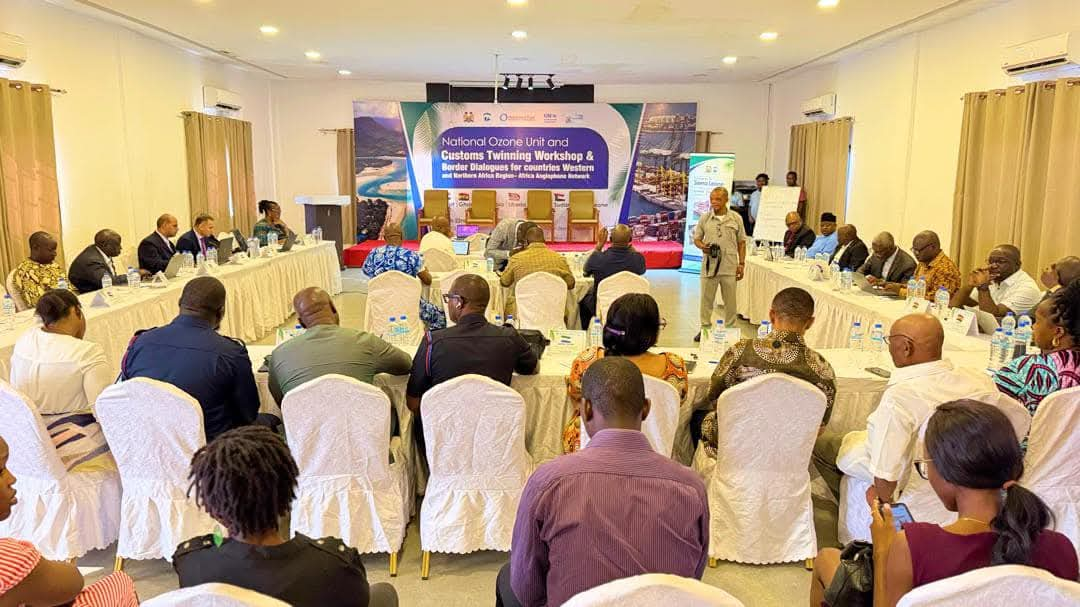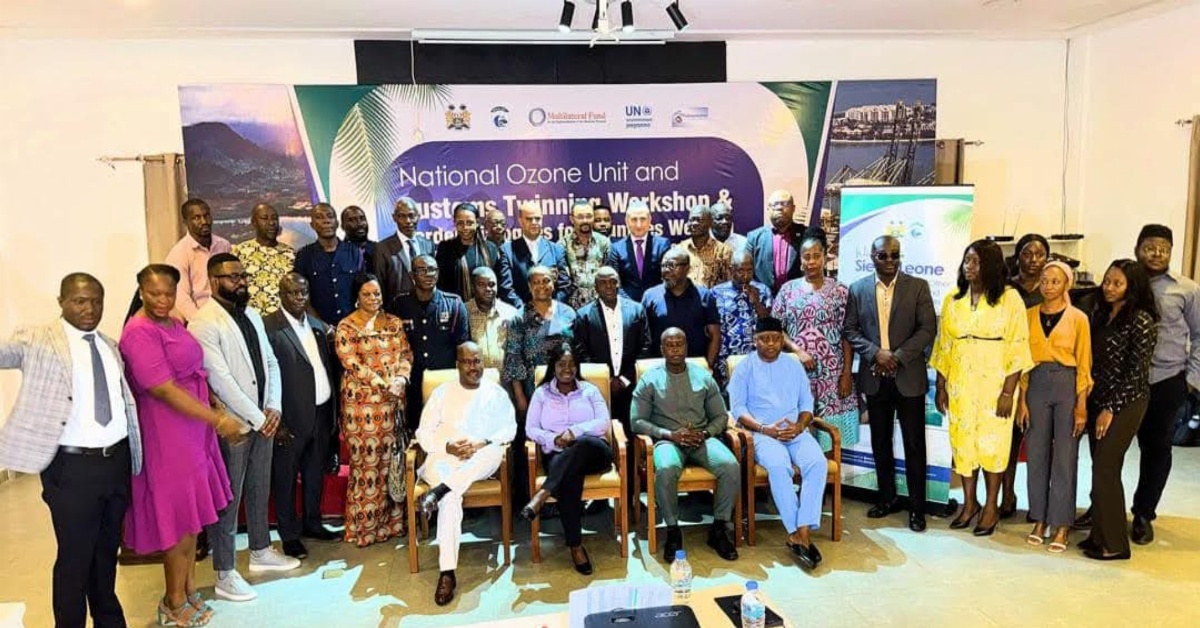The National Ozone Unit of the Environment Protection Agency Sierra Leone, in partnership with UNEP’s OzonAction branch, hosted a Twinning Workshop and Border Dialogue for National Ozone Units and Customs Officers from Anglophone Network countries in West and North Africa at the Sierra Palms Resort, Aberdeen, Freetown
National Ozone Units and customs officers from Ghana, Nigeria, Sudan, Egypt, Liberia, The Gambia, and the host country, Sierra Leone, were among the participants.
The Deputy Director of Research and Innovation, who is also the National Ozone Officer, Bashiru Kargbo, underscored the importance of customs to ensure the successful implementation of the Montreal Protocol.
He emphasised that customs are the first point of entry for any country. Therefore, they should ensure that once ozone-depleting substances (ODSs) and HCFs are properly identified, they must be confiscated to prevent illegal trade in ODSs, contact the competent authority, and keep an accurate record of import/export data for ODS/HFC and their equipment.

The workshop was marked by several presentations such as illegal trade in ODS, effective use of the refrigerant’s identifier by customs officers, HS codes and other ODS identification methods, enforcement activities at the border, iPIC procedure, and why countries should be part of it.
The significance of data recording and reporting and panel discussion was done by representatives from customs in the area of customs procedure in handling ODSs, seized ODSs, or ODS for disposal.
The workshop concluded with recommendations on how to strengthen compliance, enforcement, and collaboration by integrating the most key players, providing needed tools for effective screening of ODS/HFCs at the point of entry, strengthening regulatory provisions, capacity-building, and enhancing collaboration among stakeholders for effective tackling of illegal trade in ODSs.
The Deputy Minister of the Environment and Climate Change, Madam Mimi Yeama Soba-Stevens, stated in her closing remarks that enhanced collaboration and coordination between our respective countries and also relevant institutions within our countries can effectively enforce regulations relating to ozone-depleting substances (ODS) and HFCs, enhance compliance, reduce public health risks, and protect the environment.

She concluded that we will build on the established relationships and partnerships to prevent illegal trade in ODS and HFCs and to promote environmentally responsible practices in our respective countries.











